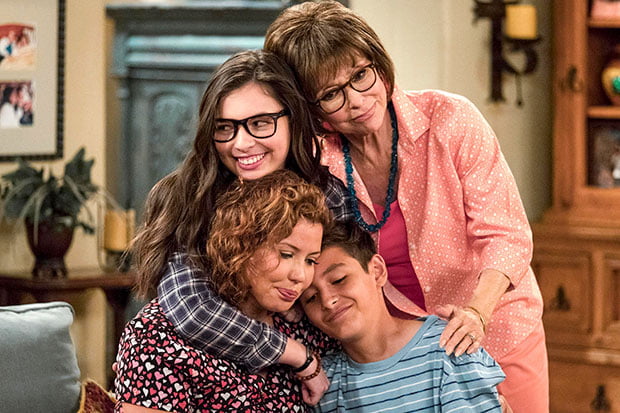Listen for the new voices
By Aron Levitz
11-12-2019
Originality in television is dead. OK, that’s an exaggeration. There are amazing new shows and incredible voices making groundbreaking TV all over the world. But when one looks at all the reboots and remakes made year after year, by the same people, it’s hard not to wonder if there are any new ideas in entertainment.
Reboots are now a fact of life in TV. It seems no series – whether long dead or recently deceased – can avoid potential resurrection. Saved by the Bell, Punky Brewster, Battlestar Galactica, Mad About You and High School Musical are just the latest, in a trend that spans networks and streamers alike. There are currently dozens of reboots in the works, and we’ve already seen dozens. Some have been successful, others less so.
We know that rebooted content can be a low-risk bet; it’s something we see the film industry do again and again. It’s an easy proposition: bet on fans supporting your franchise, even if that franchise might not be the best fit for a new world.
A reboot is, by definition, from a by-gone era. But in a society where diversity is part of the cultural fabric, audience demographics are changing and entire cohorts view identity in new ways, entertainment needs to look to new places. TV needs to find new stories to connect to the world. How can we represent a diverse and changing society if we keep looking to the past for inspiration?
Not all remakes are bad, of course. Netflix’s Queer Eye reboot has paid off immensely, introducing a more racially diverse cast and returning at a time when LGBTQ+ communities have worked tirelessly to assert the visibility they deserve. The premise of a diverse group who share their experiences and expertise in order to build community and help other people is deeply appealing in our divided world. Or look at how One Day at a Time took on a new life by exploring America’s Latinx community. These shows created something new from a familiar template, complete with new stories, conversations and people on screen.

One Day at a Time examines the Latinx community of the US
But despite some notable exceptions, women and minorities remain underrepresented in film and television, with people of colour making up less than a quarter of scripted leads across broadcast, cable and digital in the US. And not only are marginalised groups less visible on screen, their stories aren’t being told either.
The fact is, there is no excuse for the industry to not do better. We live in a world where millions of people are telling stories in new ways online. And in the middle of the ‘streaming wars,’ there is more demand for content than ever before. Social storytelling (my industry), social media, self-publishing, interactive entertainment, indie gaming and other new formats have opened up the limitless possibilities of storytelling. There are more unique stories in the world than you can possibly imagine.
Just one example of an entire genre that has yet to be represented well on screens is Muslim romance. Millions of people around the world are reading stories on Wattpad about Muslim romance, showing that all over the world there are many different love stories that still need telling. Whether it’s teenagers in the US or young adults in Indonesia, there is a real market and appetite to see more diverse stories like these. This isn’t just about who appears on the screen but about seeing new and different elements in the genres we already know and love.
These stories are out there, and as an industry we need to find them. There are entire communities of storytellers online who are imagining new worlds that we can bring to life on screen. And the best part is that these creators already have massive online followings, with millions of fans around the world willing to follow their favourite story from written word to screen. These are the future generations who want to see our global village brought to life through stories, complete with diverse identities, romances and ways of life.
Sure, it’s easy enough to dive into the archives and sift through the past few decades of television to find something compelling enough to tap into audiences’ nostalgia – but with an overwhelming amount of content on-air and streaming, television is in need of new and original content now more than ever before. Instead of filling that space with the past, it’s time for networks to make room for fresh voices just waiting to be heard.
At the end of the day, viewers are not just looking for a rehashed version of their favourite shows. In a world of untold stories, audiences want to see new stories from new perspectives, told in new ways.
Audiences are changing. They are creating a new world, moving global culture forward in exciting and inspiring ways. A new generation is creating the future. Instead of continually looking to the past, we should embrace this future, and the stories it will bring.














.jpg)




























